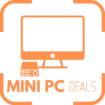Should You Switch from a Desktop PC to a Mini PC in 2025?
Weigh the pros and cons of swapping your desktop for a small form factor computer. Determine if a mini PC is the perfect choice for gaming, the office, or overall everyday use.
Table of contents
Why consider switching from a desktop to a mini PC?
Mini PCs, or small form factor PCs or compact computers, are the space-saving alternative to the traditional desktop without sacrificing performance.
In 2025, with the advancement of technology, many consumers are questioning whether their bulk tower PC can be swapped with a mini desktop. Mini PCs have advanced significantly in providing robust performance in an incredibly small package. For gaming, office applications, or viewing movies and television, switching to a mini PC can save space and energy. It is not for everyone, though. This guide explores why and why not to make the transition, backed by expert insight and user reviews.
Traditional desktops have long been the power user’s go-to, but mini PCs are closing the gap. Mini PCs like the GEEKOM IT13 2025 Edition providing workstation-class performance, or the Beelink EQ14 offering value with dependability, make it a valid question as to whether a mini PC is for you. Here are the pros, cons, and when it makes sense to make the switch.
Pros of switching to a mini PC
Discover the advantages of small computers above standard desktops.
Portability and compactness
Small PCs are very tiny, occupying very little space where full towers cannot be accommodated. They can easily be moved to work or travel purposes, as opposed to gigantic desktops.
Efficiency in power
Power-saving small form factor PCs conserve electricity charges and the environment. They produce less heat and are less noisy, ideal for home offices or living rooms.
Cost-effectiveness
Mini desktops are generally more affordable, with good performance at a lower cost. They require less maintenance and less long-term cost for running them.
Good performance for general use
Gaming, video editing, and work are easy with modern mini PCs. The MINISFORUM UM870 Slim, for instance, provides professional-grade performance when it comes to video editing.
Quiet operation
With efficient cooling and fewer fans, mini PCs operate silently, perfect for noise-sensitive areas like bedrooms or offices.
Advanced connectivity
Equipped with WiFi 6E, numerous USB ports, and HDMI 2.1, mini PCs offer enhanced connectivity options than their desktop counterparts.
These advantages make mini PCs an attractive option for those who appreciate efficiency and ease. As per current estimates, mini PCs are capable of saving 50-70% power compared to traditional desktops with 80-90% of the performance level for everyday tasks.
Disadvantages of switching to a mini PC
Get familiar with the limitations before rendering your desktop PC obsolete.
Limited upgradability
Mini PCs have no upgrade options with their tiny frames, which makes substituting components like GPUs or adding more storage to some degree harder than full towers.
Most probable thermal issues
Small frames can lead to higher heat during strenuous tasks, potentially throttle performance if cooling is inadequate.
Lower peak performance
For serious gaming or commercial use, desktops have more power and better sustained performance to most mini desktops.
Less ports for expansion
Some mini PCs have limited I/O options, requiring docks or adapters for many peripherals.
Higher cost per performance
Though cost-effective, top-of-the-range mini PCs are likely to be more costly on a per-performance basis compared to custom desktops.
Compatibility issues
Certain software or hardware may not be designed for mini PC architectures, leading to potential issues.
While these come with their drawbacks, the vast majority of users find that for everyday use, the benefits outweigh the limitations. Heavy users may prefer to stick with traditional desktops for maximum flexibility.
When do you switch to a mini PC?
Measure your needs to decide whether a small form factor PC would be the future.
Switch if space savings, portability, and energy efficiency are more important to you than maximum performance and upgradeability. Appropriate scenarios include:
- Limited desktop real estate or hot-swapping
- Daily computing, gaming, or streaming media use
- Home office or HTPC setups
- Green-conscious users seeking lower power consumption
- Budget-conscious consumers desiring a more compact all-in-one package
Stay with a desktop if you need extreme customization, hardcore gaming, or professional-level rendering. Mini PCs like the Beelink EQ14 do the trick for those who are on a tight budget in 2025, and the GEEKOM IT13 offers workstation-class performance with just half the size of a typical desktop.
Consider your workflow: If your current desktop is overkill for tasks like web browsing or office work, a mini PC like the Beelink EQ14 can save money and space without compromise.
Top mini PC recommendations for 2025
If you’re ready to switch, here are our top picks for small form factor PCs.
Kinupute Mini PC Gaming i9
Top for switch high-end gaming
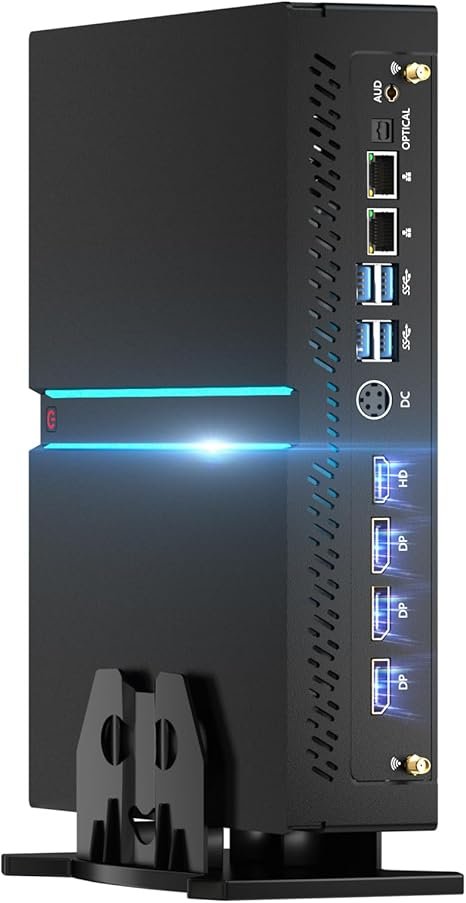
High-performance i9-14900F and RTX 4060Ti mini pc offers desktop gaming in mini form, perfect for switching without sacrificing performance.
GEEKOM IT13 2025 Edition
Best value for worktop performance
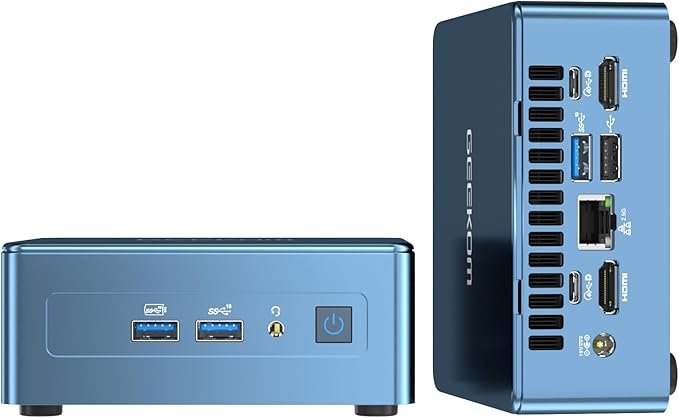
This compact workstation with Intel Core i9-13900HK and 32GB DDR4 offers superior-quality performance for creative work and data analysis, as well as simplicity of upgrade.
MINISFORUM UM870 Slim
Best value for video editing
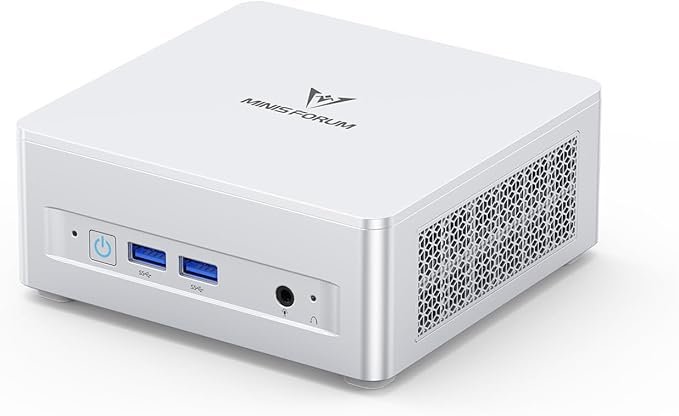
Affordable mini PC for video editing with Ryzen 7 8745H and 32GB DDR5, suitable for 4K rendering and multitasking.
Beelink EQ14
Best budget mini PC
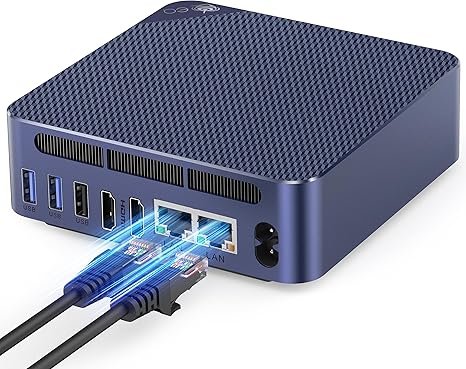
This Intel N100 and 16GB RAM-enabled budget mini PC is best suited for students and remote workers who need reliable performance for everyday tasks.
ASUS ROG NUC RNUC14SRKU9189A0I
Best for gaming enthusiasts
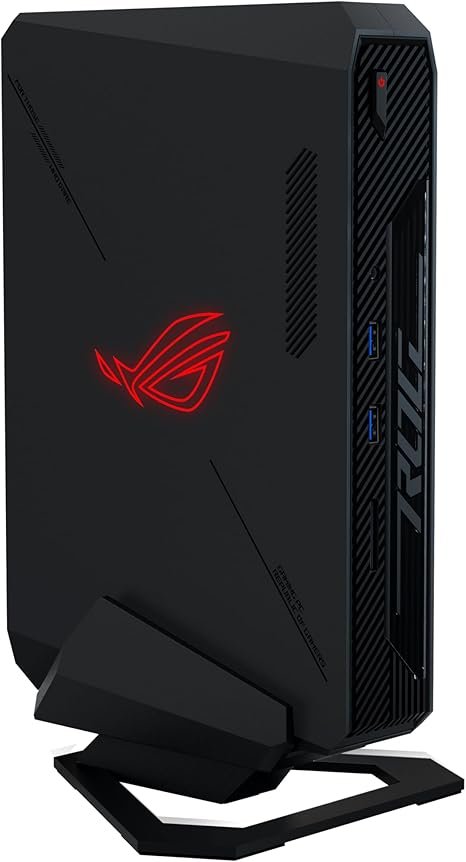
Small gaming monster with Core Ultra 9 and RTX 4070, ideal for desktop tower replacement for 4K gaming.
MINISFORUM Venus UM790 Pro
Ideal for everyday use
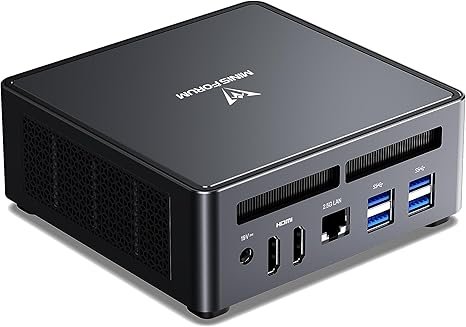
Low-price mini PC for office and light gaming, perfect for converting from a basic desktop.
Mini PC vs Desktop comparison
Key differences to inform your decision-making on whether or not switching is right for you.
| Aspect | Mini PC | Desktop PC |
|---|---|---|
| Size | Space-saving, compact | Needs more space, bulky |
| Portability | Extremely portable | Not portable |
| Power Consumption | Low (50-100W) | High (300-1000W+) |
| Upgradability | Limited | Highly upgradable |
| Performance | Good for most tasks | Better for high-end |
| Cost | Entry-level price | Flexible budgeting |
| Noise | Quiet | Noisy |
Frequently asked questions
Well-liked questions about switching to a mini PC.
Ready to make the leap?
Take our Mini PC Configurator quiz or discover more guides on MiniPCDeals.net to find the perfect little computer for you!
Start now